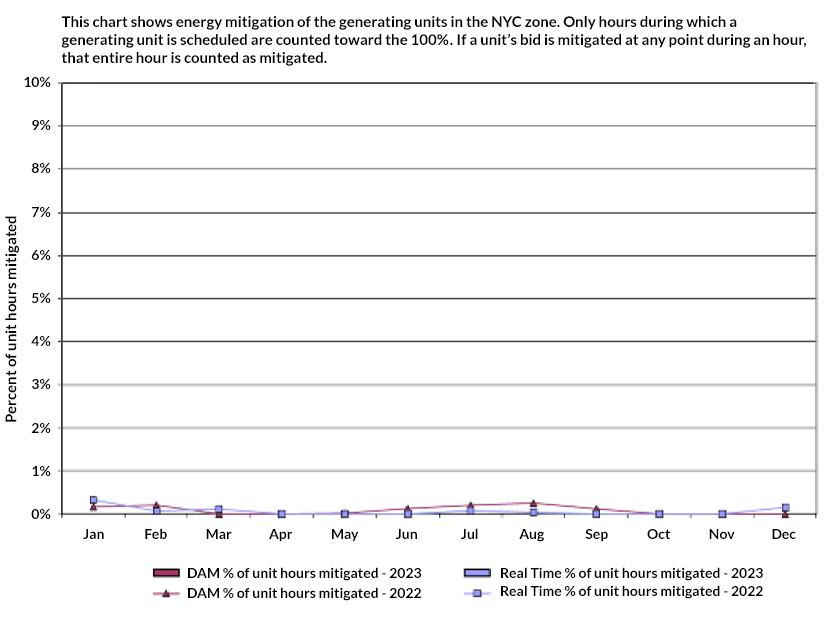NYISO said a market software problem identified this year in the day-ahead and real-time ancillary services markets had a negligible financial impact and did not result in any market manipulation.
RENSSELAER, N.Y. — NYISO on Thursday said a market software problem identified this year in the day-ahead and real-time ancillary services markets had a negligible financial impact and did not result in any market manipulation.
In an update to the Installed Capacity/Market Issues Working Group, NYISO staff disclosed that an issue with the automated mitigation process (AMP), a mechanism that identifies and mitigates instances of market abuse to keep conditions competitive, led to a mere $893 of missed real-time mitigation over two hours and $41,729 in day-ahead mitigation over three days.
NYISO determined that the issue did not meet the threshold to be considered a significant market problem because the issue was quickly resolved and no unfair market behaviors were observed.
The AMP validates and adjusts bids in the day-ahead market before settlement and conducts ongoing monitoring in the real-time market to ensure that market participants are not manipulating the market for their own gain. NYISO found that it was not working properly July 6 because of an April software deployment, which prevented the AMP from both effectively executing its mitigation procedures and evaluating start-up or minimum generation references correctly.
In response, NYISO issued a notice of a potential market problem July 11, initiating a confidential investigation in collaboration with its Market Monitoring Unit and FERC to determine whether the issue significantly disrupted the market or if any market participants were gaming it. (See NYISO Discovers Market Problem, Opens Confidential Investigation.) By July 18, the software issues were resolved for the day-ahead market.
Further investigation showed that the conditions for the AMP to “trigger” never materialized during the period it was malfunctioning, indicating that the impact was minimal. ISO staff noted how AMP activates infrequently to adjust bid offers, mitigating less than 0.5% of the unit hours throughout the previous year.
Mark Younger, president of Hudson Energy Economics, encapsulated stakeholders’ reaction to the $893 cost in the real-time market, exclaiming sarcastically, “That is outrageous!”



